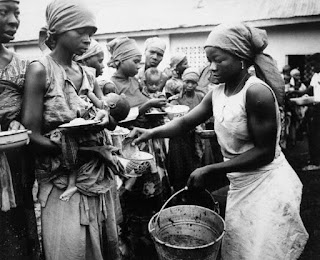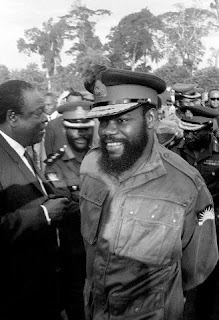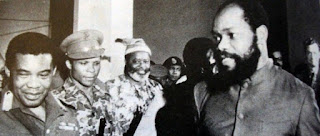BIAFRA: Corporal Nwafor And Souls Forgotten

By all military odds, Biafra should have lost its war with the federal Nigerian vandals long ago. It has not lost, but in the next few months it might--vanquished by starvation. Here, women and children receive their meager rations at a refugee camp with some of their men lost in battle. Date: March 22, 1969. Location: Umuahia. Image: Bettmann Collection When Omieba Dan Princewill died in an air crash with Ibrahim Abacha and 12 others 24 years ago, a member of the Dan Princewill family was emphatic about keeping the apparel their son wore. That was to show that even in death the young man was brave. In 1968, Corporal Nwafor died, fighting for Biafra at Ugwu Nwasike, Ogidi. A captured Saladin Armoured vehicle was named after him. One remarkable thing was that during his funeral in Umuoji, a Nigerian Air Force bomber attacked the church. The officiating priest asked everyone to remain calm preaching that God would protect his children. The mourners obeyed. One man waved off ...







